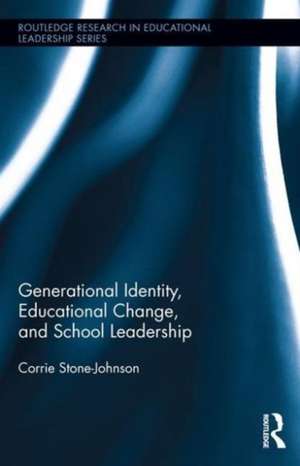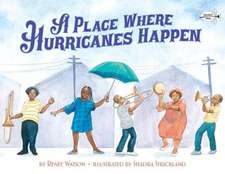Generational Identity, Educational Change, and School Leadership: Routledge Research in Educational Leadership
Autor Corrie Stone-Johnsonen Limba Engleză Hardback – 8 apr 2016
Din seria Routledge Research in Educational Leadership
-
 Preț: 311.41 lei
Preț: 311.41 lei -
 Preț: 271.20 lei
Preț: 271.20 lei - 19%
 Preț: 253.20 lei
Preț: 253.20 lei - 9%
 Preț: 1005.78 lei
Preț: 1005.78 lei -
 Preț: 356.02 lei
Preț: 356.02 lei -
 Preț: 302.54 lei
Preț: 302.54 lei -
 Preț: 301.95 lei
Preț: 301.95 lei - 12%
 Preț: 331.87 lei
Preț: 331.87 lei -
 Preț: 443.69 lei
Preț: 443.69 lei -
 Preț: 387.31 lei
Preț: 387.31 lei -
 Preț: 395.76 lei
Preț: 395.76 lei -
 Preț: 422.59 lei
Preț: 422.59 lei -
 Preț: 381.72 lei
Preț: 381.72 lei -
 Preț: 393.26 lei
Preț: 393.26 lei -
 Preț: 335.29 lei
Preț: 335.29 lei - 12%
 Preț: 318.90 lei
Preț: 318.90 lei -
 Preț: 379.04 lei
Preț: 379.04 lei - 17%
 Preț: 251.93 lei
Preț: 251.93 lei -
 Preț: 366.69 lei
Preț: 366.69 lei - 5%
 Preț: 364.63 lei
Preț: 364.63 lei -
 Preț: 343.77 lei
Preț: 343.77 lei -
 Preț: 172.40 lei
Preț: 172.40 lei - 18%
 Preț: 1006.77 lei
Preț: 1006.77 lei - 18%
 Preț: 999.51 lei
Preț: 999.51 lei -
 Preț: 376.10 lei
Preț: 376.10 lei - 18%
 Preț: 1008.17 lei
Preț: 1008.17 lei - 18%
 Preț: 1001.07 lei
Preț: 1001.07 lei
Preț: 1213.36 lei
Preț vechi: 1479.70 lei
-18% Nou
Puncte Express: 1820
Preț estimativ în valută:
232.17€ • 241.94$ • 192.24£
232.17€ • 241.94$ • 192.24£
Carte tipărită la comandă
Livrare economică 03-17 aprilie
Preluare comenzi: 021 569.72.76
Specificații
ISBN-13: 9781138846531
ISBN-10: 1138846538
Pagini: 122
Ilustrații: 6 black & white tables
Dimensiuni: 152 x 229 x 11 mm
Greutate: 0.32 kg
Ediția:1
Editura: Taylor & Francis
Colecția Routledge
Seria Routledge Research in Educational Leadership
Locul publicării:Oxford, United Kingdom
ISBN-10: 1138846538
Pagini: 122
Ilustrații: 6 black & white tables
Dimensiuni: 152 x 229 x 11 mm
Greutate: 0.32 kg
Ediția:1
Editura: Taylor & Francis
Colecția Routledge
Seria Routledge Research in Educational Leadership
Locul publicării:Oxford, United Kingdom
Public țintă
Postgraduate and UndergraduateCuprins
1. Introduction 2. Generations Over Time 3. Educational Change 4.Changes in Perceptions of Teachers’ Work 5. Generation X: Self-Image, Self-Esteem, and Task Perception 6. Generation X: Job Motivation and Future Perspective 7. Conclusion with Dana Serure
Descriere
Generational identity plays a large role in how teachers view educational change and school reform. This volume reviews five decades of research on educational change and teachers’ varying responses to it from the Boomer Generation to Generation X, providing school leaders with insight on how best to relate to these groups to achieve a common goal. Through ongoing professional development oriented by multigenerational grouping, teachers and school leaders can define success and create a multigenerational understanding of what good teaching and leadership look like.











